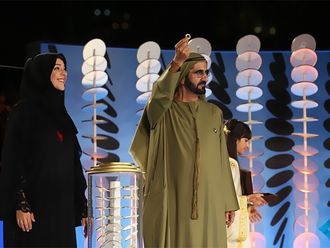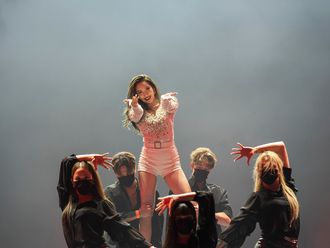Dubai: Japan is the only country that is promoting 8K even as 4K hasn’t gained traction.
Kohei Nakae, director of 8K technical production development at Japan Broadcasting Corporation (NHK), said that the 8K TV will only be for the rich right now and the common man will be satisfied with a 4K.
“If people are looking for less than 100 inches, then it is better to go for 4K TVs. The new 4K/8K satellite receivers will be in the market by 2018 and the receiver can receive 4K and 8K signals and convert in 4K output,” he said.
NHK is aiming to broadcast Dubai’s World Expo 2020 in 8K.
“We will hold talks with local broadcasters for the rights. Dubai has many malls and one of the busiest airport and these are the right places where large-sized 8K TVs can be placed for public viewing. Japanese manufacturers are working with 4K and 8K compatible devices.”
“We are doing production for both — 8K and 4K — but the focus is on 8K. 8K is good for dramas, documentaries and live sports but it will take at least 10 years for news broadcasting to happen in 8K,” he said.
Mizutani Jun, ministry of internal affairs and communications of Japan, said that 4K/8K video technology is expected to spread to education, science, medical science, design, planning and industry use.
Right now, he said the penetration rate of 4K TVs in Japan is 2.2 per cent and it will grow to more than 52 per cent when Tokyo Olympics takes place in 2020.
“The road map for 8K test broadcast starts with the Rio de Janeiro Olympics in 2016 and 8K broadcast will happen by 2017 or for 2018 Fifa World Cup in Russia in 2018,” he said.
4K TVs have 16 million colours while 8K TVs will have 1 billion colours.
J.D. Lee, general manager of TV department at LG Electronics Gulf, said that 8K is too early to talk for commercial use while Vinod Nair, general manager of Samsung Gulf Electronics’ CTV Business, said that 8K technology will take time to come into the mainstream.








